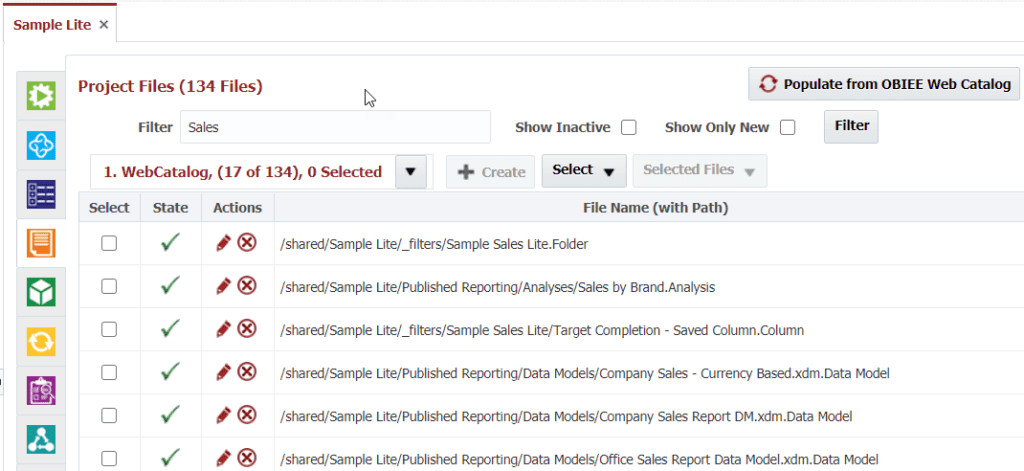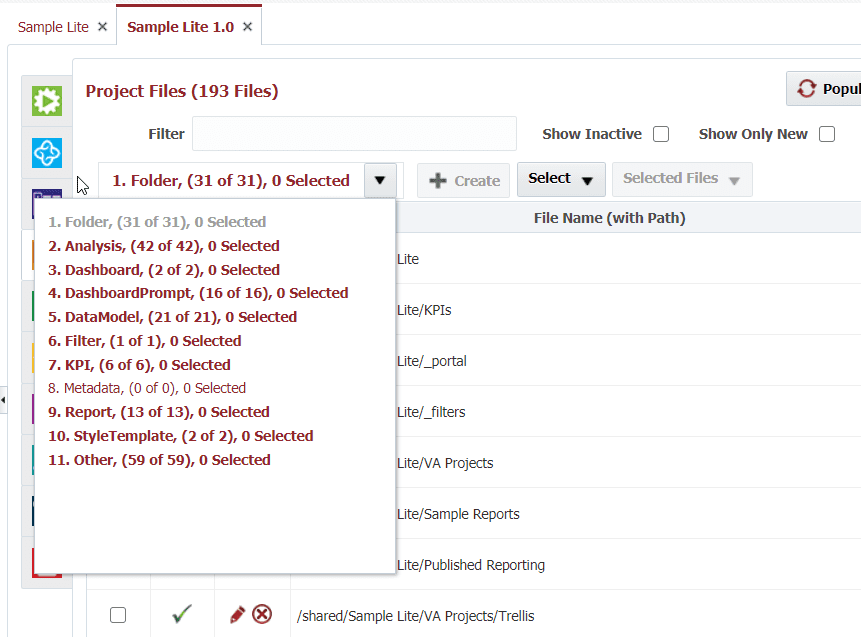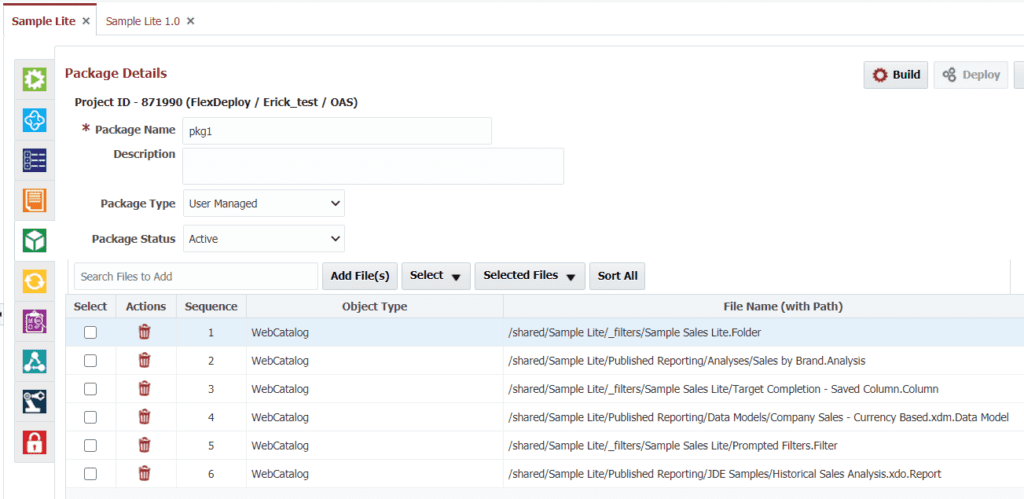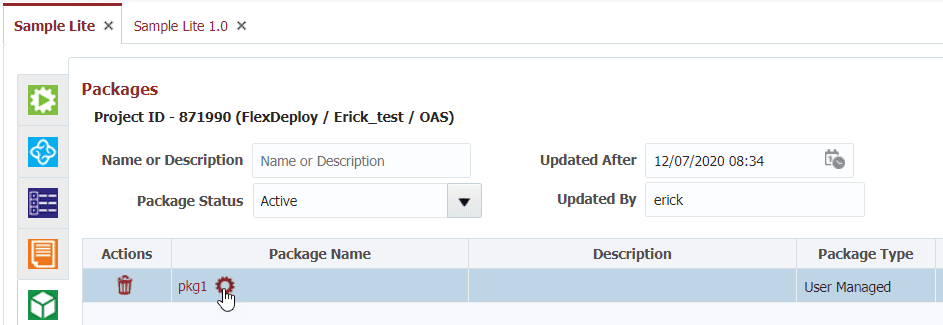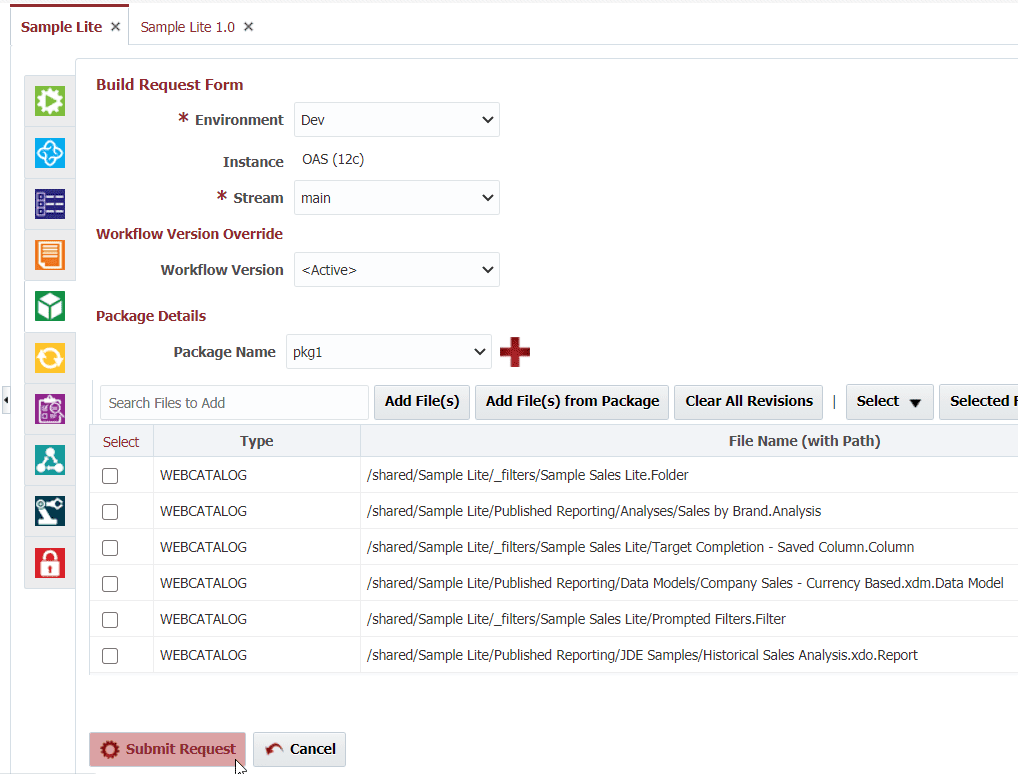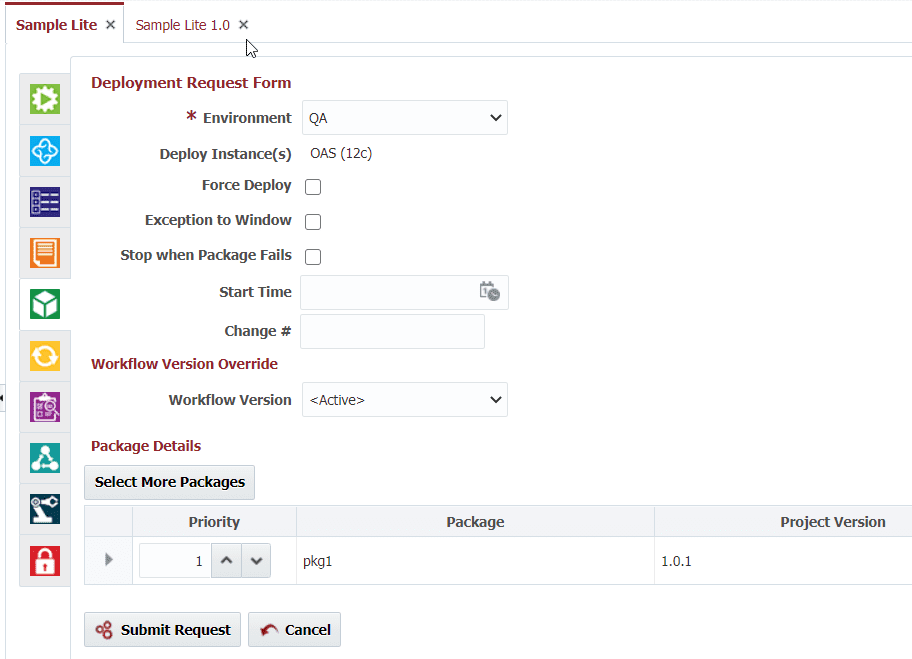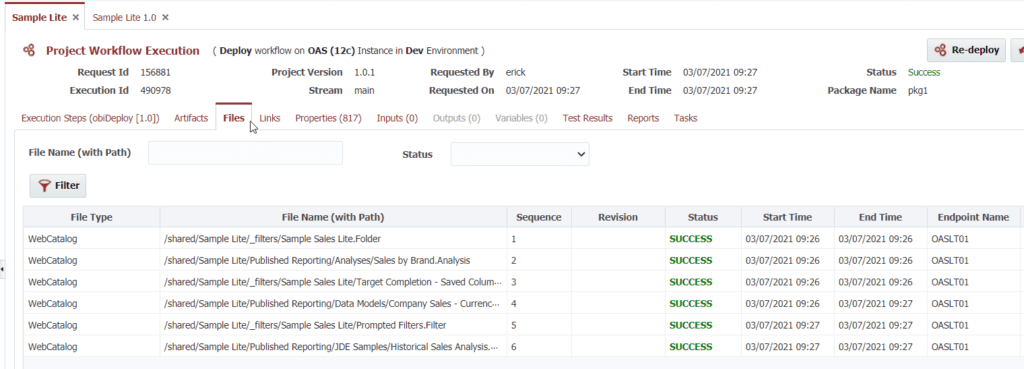FlexDeploy’s growing investment in Oracle Business Intelligence products makes it simple to incorporate CI/CD best practices into your SDLC. Out of the box solutions are available for:
- Oracle Business Intelligence Enterprise Edition (OBIEE)
- Oracle Analytics Server (OAS)
- Oracle Transactional Business Intelligence (OTBI)
Whether you have an on-premises implementation with OBIEE, are planning a move to the cloud with OAS, or have implemented Oracle Cloud Application along with OTBI, FlexDeploy is there to help you deliver analytics solutions to your business and customers.
All solutions are built upon FlexDeploy’s market leading DevOps platform, enabling high quality and faster software delivery.
OBIEE and Oracle Analytics Server
FlexDeploy’s plugin for Oracle Business Intelligence has enabled CI/CD for OBIEE since 2017. In 2021, the solution was extended to support Oracle Analytics Server, and provides powerful options for organizing and managing your Web Catalog objects into build packages. Options are also available to easily synchronize your Web Catalog modifications with a Source Control System, such as Git or Subversion.
There are two FlexDeploy project types for OBIEE/OAS.
- Oracle BI – this is the long-standing project type which organizes your Web Catalog project files by object type (e.g. Folder, Data Model, Report, etc.), making it easy to locate objects for each type and add them to your build packages.
- Oracle BI 2.0 – this new project type collapses Web Catalog project files into a single object type, called WebCatalog, and adds a file extension mapping to the object type, making it easier to filter for related objects spanning several object types.
Both project types have their advantages, and it comes down to personal preference as to which is right for your team. Independent of the choice, all project files are available for assembly into packages, which can then be built and deployed across your release pipelines using FlexDeploy’s comprehensive platform features. The solution for managing the RPD build and deployment are identical for the Oracle BI and Oracle BI 2.0 project types.
Managing the Web Catalog
In the example below, I have populated all files from the Sample Lite folder into an Oracle BI 2.0 project type. This example happens to be for OAS, but the same solution applies to OBIEE.
Note that if I had configured the project as an Oracle BI project type, I would have the same project files, but they would be organized into separate types.
Now that I have my project files, I can create my first package and add a few files to it.
Next I can build the package, which will execute the linked build workflow, taking advantage of the out of the box plugin to archive the catalog objects from my OAS Development server.
The build request is submitted, and the execution engine executes the build workflow.
When the execution completes, and I drill into the details, I can see the build artifact. The build artifact is a zip file that contains the files from my package which were archived from my development OAS server.
We can then create a pipeline which will orchestrate the delivery of the package across environments in the SDLC. But here I will simply perform an adhoc deployment request into the QA environment.
Similar to the build, the execution engine will execute the deploy workflow, which unarchives the objects in the build artifact into the QA environment. Below I can see that all files in the package were successfully deployed.
How was this Sample Lite project bound to the build and deploy workflows for OAS?
The project is configured with the associated build and deploy workflows, and mapped to a logical instance I called OAS (12c). In FlexDeploy’s topology (not shown), the instance is mapped to several environments, along with values for a few environment-specific connection parameters (e.g. server hostname/port, Middlware Home, etc).
Managing the RPD
What about deploying the RPD?
Similar to the Sample Lite project, I would create a project for the RPD and bind it to build and deploy workflows to accomplish those functions.
- A Build workflow would use the rpdBuild plugin operation to export the RPD from my development OAS server, or an SCM.
- A Deploy workflow would use the rpdDeploy plugin operation to apply environment specific connection parameters to the RPD and import into the target OAS server.
Oracle Transactional Business Intelligence
The support for OTBI is very similar to OBIEE/OAS, with the a few subtle differences:
- OTBI runs on the Oracle Cloud, with no access to the underlying infrastructure.
- The Web Catalog is managed using an Oracle Transactional BI project type, which is equivalent to an Oracle BI 2.0 project type for OBIEE/OAS.
- The RPD cannot be modified for OTBI.
Read all about the FlexDeploy support for OTBI in CI/CD Meets Oracle Transactional Business Intelligence.
Summary
FlexDeploy provides a leading DevOps solution for managing the build, deploy, and release lifecycle across a diverse set of technologies and middleware platforms. Broad support for the Oracle Analytics ecosystem is one of many examples where you can adopt the benefits of an automated and streamlined DevOps solution with simple configuration and no scripting.
Please checkout our many blog articles to learn about the ever-growing list of out of the box plugins.
No plugin for a particular technology or platform you are interested in?
Have no fear, as the FlexDeploy platform is open and extensible to incorporate your own custom solutions!


